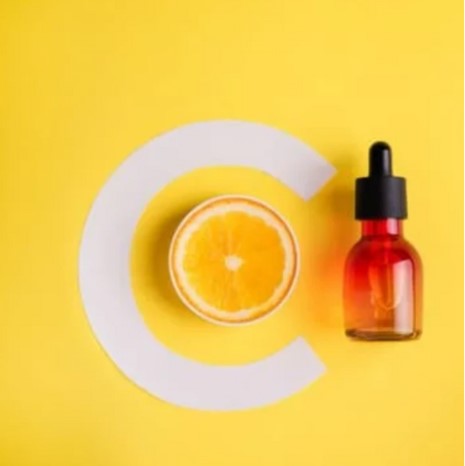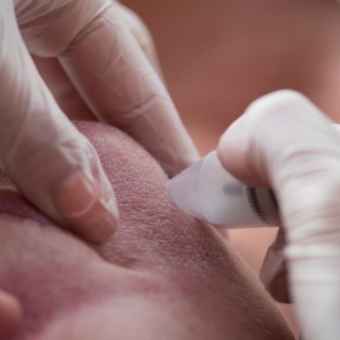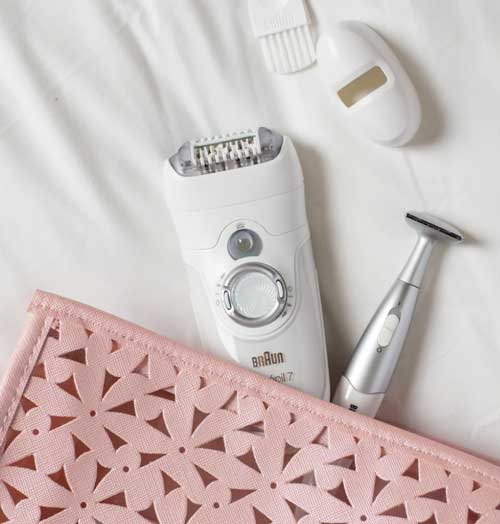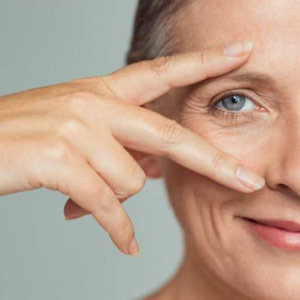All You Need To Know About Cetearyl Alcohol In Skincare
This article was updated on:

One common knowledge that many people who are keen on skincare would know is that most common alcohols are not the skin's best friends. Alcohols like ethanol can have a very drying and sensitizing effect on the skin, thereby causing irritation, and so many people tend to stay away from products containing them. Cetearyl alcohol, however, is a different kind of alcohol with more significant benefits for the skin. Cosmetic companies are drawn to this chemical ingredient precisely because of its versatility.
Cetearyl alcohol is a skincare ingredient that performs multiple functions at once. When compared with other alcohols, this naturally occurring ingredient derived from coconut oil fatty acids actually has some benefits to offer you.
What Exactly is Cetearyl Alcohol?
Cetearyl alcohol also called Cetostearyl alcohol, or cetyl/stearyl alcohol is a white, waxy solid comprising two other alcohol, cetyl alcohol, and stearyl alcohol. It is derived naturally from plants like coconut and palm oil or harvested from animals like whales and dolphins. Cetearyl alcohol is also quite easily synthesized in the laboratory.
It is completely insoluble in water but will dissolve in other alcohols and oil. Melts at a temperature of about 500C and boils at 2490C. It belongs to a group of alcohol called fatty alcohol because its chemical makeup comprises a complex fat and is attached to a hydroxyl(-OH) group.
This is why Cetearyl alcohol action on the skin is quite different from those of the more commonly known types of alcohol; the complex nature of its chemical structure makes them quite oily and waxy as opposed to thin and dry. The common alcohols we are used to are called simple alcohols.
These types of alcohol have a water-like appearance and can dissolve fat and lipids, and this action will leave the skin very dry and flaky. These simple alcohols are the major constituents of products like hand sanitizers and perfumes.
Cetearyl alcohol, on the other hand, is what can be referred to as an emollient in that it has a water trapping effect and helps to create a soothing feeling on the skin. Emollients operate by forming an oily layer over the skin's surface, which then hold moisture within.
Methylparaben Is A Widely-Used Skin Care Ingredients To Be Aware Of
Is Methylparaben Safe? Methylparaben shown to be potentially toxic to our health. Therefore, if you ask us about the safety of methylparaben, we would say BETTER NOT. Here's why.

Cetearyl Alcohol and Skin Care
All creams and lotions are made up primarily of two or more immiscible liquid substances. Usually, oil and water are made to bind together by an emulsifier to form an emulsion. Cetearyl alcohol has proven to be the most effective emulsifier for the cosmetic industry for so many years now.
It has provided the needed backbone for many skincare products to ensure their stability and usability. In the absence of cetearyl alcohol, these products will not work well in cosmetic applications, which means that they will be unstable on your skin or hair and separate easily into tiny droplets of water and oil.
In addition to this function, cetearyl alcohol also serves as an excellent emollient that does an excellent job of softening and smoothening the skin. This is because the alcohol itself has an oil and fat base, which can fill cracks and uneven surfaces on the skin and helps to lock moisture within.
This function, though, is not the primary reason for including it in the formula, as some other oils in the product are meant to do this as well. It is, however, not an undesirable thing if you can get ingredients that can perform diverse functions like this when developing your products.
This alcohol is so important in making all these different types of skin and hair products also because it not only helps to bind the active ingredients together but also helps to control the texture of the product.
Whether or not a product is thick or runny is primarily determined by the concentration and quantity of cetearyl alcohol used. In addition, stable foam formation properties of some products have also been traced to cetearyl alcohol.
Various Uses of Cetearyl Alcohol
Though cetearyl alcohol is not employed for any therapeutic purposes when used in skin products. It will not provide direct action, for instance, on skin problems like acne or other conditions for which purpose one may need to use a product; it may not even provide a change in tone or complexion of the skin.
It, however, is very crucial to the enhancement of the formulation of any skin product. Therefore, it is usually listed on the labels of skincare products as inactive ingredients.
The importance of this chemical in the cosmetic industry has been discussed briefly in the last section above, but here is putting in proper perspective and simple language the diverse uses of cetearyl alcohol.
As an emulsifying agent: it is a known fact that oil and water are not very friendly. They usually have a hard time mixing, and when they are both needed to work together as required in creams and lotion, something special then needs to happen. In this case, cetearyl alcohol is used.
By using this ingredient in the formulation, binding is created between the water and oil components of the mixture, resulting in what is known as an emulsion. It not only creates a binding effect but also ensures that these components do not separate during application.
As an emollient: it prevents dry skin by moisturizing it. This has a particularly softening effect on the skin as skin water is kept longer on its surface. Additionally, it should be noted that regular alcohols, such as ethanol and rubbing alcohol, have the opposite effect, which is drying and flaking.
As a thickening agent: the feel and texture of your products are directly related to Cetearyl alcohol. This is due to its fatty component, which helps it maintain an oily consistency, creating a smooth and creamy texture in the product. Without Cetearyl alcohol, your product may turn out to be too watery or runny like a soup.
It helps with even application: the last thing you want from your skincare product is terrible or uneven consistency. Instead, you want to be sure that when it is applied over your body, the active ingredients are evenly distributed so that the action is continuous over the entire area of application. Cetearyl alcohol helps in this area by making the active ingredients stick together in a neat and tidy fashion so that at no point does the product lose its consistency.
Have You Tried 100% Plant-Based??

Is Cetearyl Alcohol Bad for Your Skin?
The question, of course, arises with almost every product about the safety of use. Cetearyl alcohol, as has been mentioned earlier in the introduction, is considered to be almost without any significant known side effects. Additionally, it has been noted that the mechanism of action of this alcohol is quite different than that of more commonly known alcohols like ethanol, propanol, etc., which are known to cause dryness and irritation to the skin.
According to the Cosmetic Ingredient Review (CIR) Expert Panel, using fatty alcohols like cetearyl alcohol in cosmetic processes poses no threat. When clinical studies were carried out, it was found that Cetearyl alcohol had no significant toxicity and was not mutagenic. Mutagens are chemical agents that can change your DNA. Changes in human DNA are hazardous and result in deadly diseases like cancer.
Further studies have also revealed that Cetearyl alcohol, to a considerable extent, is not responsible for skin irritation as a result of product use. According to the FDA, Cetearyl alcohol and other fatty alcohols are so safe that cosmetic products labeled "alcohol-free" may contain Cetearyl alcohol. The FDA has also listed cetearyl alcohol on its list of permitted and safe additives.
As with many skincare products, there's a small risk of allergic reaction to cetearyl alcohol. Based on a 2007 study, cetearyl alcohol allergy was confirmed in 5 cases, but reactions to other chemical allergens were also observed. So unless you have extremely sensitive skin, cetearyl alcohol is entirely safe. However, you can always do a patch skin test when you purchase any product to be sure you won't react negatively to the ingredients.
Many products on the market today contain cetearyl alcohol, including skin creams, moisturizers, lotions, shampoos, sunscreens, conditioners, hair dyes, mascaras, hair mousse, and more. It most often appears on the ingredients list as cetearyl alcohol, but it has other names, some of which are (C16-C18) alkyl alcohol, (C16-C18) alcohols, cetyl/stearyl alcohol, 1-octadecanol, mixed with 1-hexadecanol.
The Bottom Line....
One of your most valuable accessories is your skin. Therefore, you need to pay attention to your skin's health. Therefore, skincare products made from the best ingredients are so important. Here at Metamora, we provide excellent skincare products that have been carefully formulated to give you the best results and experience. Explore our wide variety of skincare products today.
References:
- https://www.healthline.com/health/cetearyl-alcohol
- https://www.everydayhealth.com/smart-skin/alcohol-in-skin-care
- https://journals.sagepub.com/doi/pdf/10.3109/10915818809023137
- https://www.researchgate.net/publication/325294915_Cetearyl_isononanoate









